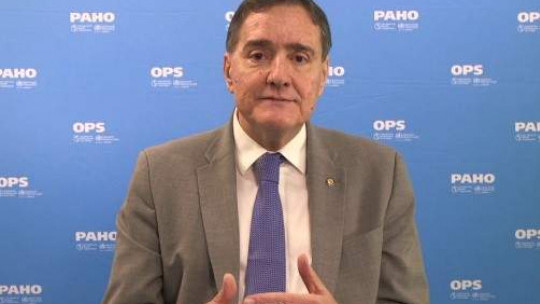.png)
00:00
00:00
00:00
PAHO's Director Dr. Jarbas Barbosa, speaking through an interpreter
The Pan American Health Organization (PAHO) says more than 12.6 million dengue cases have been reported this year, nearly three times the record in 2023.
This is the largest dengue epidemic in the Americas since record keeping began in 1980.
PAHO Director Dr. Jarbas Barbosa says 21,000 of the dengue cases reported this year were severe.
Providing an update on dengue transmission in the region via a virtual media briefing on Tuesday, Dr. Barbosa said more than 7,700 people have died this year from the mosquito-borne dengue virus.
"Argentina, Brazil, Colombia, and Mexico have accounted for 90% of dengue cases and 88% of deaths related to this disease in the region this year, with Brazil accounting for the largest share. Dengue is also posing a higher than normal risk to children. Children under 15 years of age have accounted for more than a third of dengue cases in Costa Rica, Mexico, and Paraguay. In Guatemala, 70% of dengue deaths have occurred in children," he outlined.
Dr. Barbosa said the geographical area susceptible to dengue transmission is also expanding to countries such as Argentina and Uruguay.
He said the dengue virus is spreading to countries that are not usually affected by the disease such as the United States where most cases have been imported by travellers.
"This increase in cases is directly associated with climatic events, including droughts, floods, and warmer climates that favour the proliferation of mosquito breeding sites. Rapid population growth, unplanned urbanisation, and living conditions with inadequate water supply, insufficient sanitation, and poor waste management are also driving the spread," he suggested.
Despite the rapid spread of the dengue virus, Dr. Barbosa said the region is not defenceless against the vector-borne disease.
He said PAHO's integrated management strategy for arboviral diseases, which includes vector surveillance, training of healthcare providers and community engagement, has been instrumental in keeping severe and fatal cases relatively low.
According to Dr. Barbosa, some countries are also using dengue vaccination to help in the fight against the virus.
"Dengue vaccines have been introduced in Argentina, Brazil, and Peru, and Honduras plan to do so in 2025," he said.
But he admitted that while the current dengue vaccine can be a valuable tool for improving community protection and individual outcomes, it will not stop the spread of the virus in the short to medium term, adding that "it does not provide immediate relief during an outbreak".
In addition, he said, global supplies for the vaccine remain very limited.
comments powered by Disqus










 All feeds
All feeds







